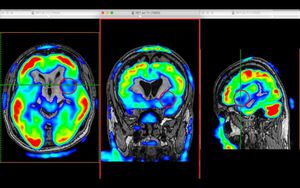On January 21, 2025, Japan's ruling coalition parties proposed significant changes to the income tax threshold, seeking to alleviate the tax burden for millions of citizens. The plan suggests increasing the income level at which taxes begin, commonly referred to as the "1.03 million yen wall," significantly raising it to accommodate incomes up to 8.5 million yen.
The proposal emerged during discussions among the Liberal Democratic Party (LDP), the Komeito (Public Affairs), and the Democratic Party for the People (DPP). These negotiations mark a continued effort to address economic challenges faced by low-income earners and families across Japan.
Currently, the income threshold for taxation starts at 1.03 million yen. Under the new proposal, this threshold could rise to 1.6 million yen for those earning less than 2 million yen, and progress through four distinct tiers based on income brackets up to 8.5 million yen. This aims to streamline tax deductions significantly, allowing for greater financial relief.
Komeito's leadership articulated the rationale for this revision, indicating the desire to "broaden the tax-free threshold to provide relief to more income layers." Akabane, Chair of the Tax System Research Council, emphasized this point following the coalition's meeting, which was well attended by key party representatives.
Notably, the proposal includes specific adjustments according to income levels. For incomes under 2 million yen, there would be an additional deduction of 370,000 yen on the current basic deduction of 580,000 yen. Those earning between 2 million and 4.75 million yen could see their deduction increase by 300,000 yen; for incomes ranging from 4.75 million to 6.65 million yen, the increase would be 100,000 yen; and for incomes up to 8.5 million yen, the extra deduction would be capped at 50,000 yen.
The DPP is currently reviewing the proposal internally, with key figures expressing concerns over the complexity of the tax framework. "This proposal is well-devised; we will bring it back for internal discussion next week," remarked one DPP representative, hinting at the need for careful examination before giving their consent to the plan.
Despite differing views on taxation principles, the LDP's Miyazawa expressed significant support for the Komeito suggestion, underscoring the coalition's collective commitment to tax reform. "We want to facilitate reductions where they are most beneficial," he confirmed during the discussions.
The potential impacts of this proposal are substantial, affecting over 80% of taxpayers and streamlining the tax process, especially for low-income citizens. Supporters argue this move will help lower the overall tax burden and assist families seeking to stabilize their finances amid Japan's challenging economic climate.
Government forecasts anticipate the proposed adjustments could lead to approximately 1.2 trillion yen in revenue loss. This figure indicates the financial impact of raising the thresholds and suggests how extensive the revisions could be on total tax income. Proponents argue this is necessary to revitalize spending and support economic recovery.
On the other hand, the DPP continues to advocate for broader reforms, pushing against any income thresholds to simplify taxation uniformly across Japan. The divide highlights the challenges within the coalition, but discussions remain constructive. DPP's Takamura noted, "We believe some aspects could veer slightly from fundamental tax principles, necessitating rigorous debate as we proceed forward."
The discussions have set the stage for more meetings scheduled for January 25, where party representatives will evaluate feedback from their respective constituents and business sectors before arriving at a final decision.
Overall, the revisions to the income tax parameters aim to reflect current economic realities, lighten the burden on taxpayers, and accommodate diverse income situations.
These proposed changes signal the governing coalition's recognition of the public's pressing fiscal needs as Japan aims to bolster its economic stability through thoughtful and strategic tax policy.



